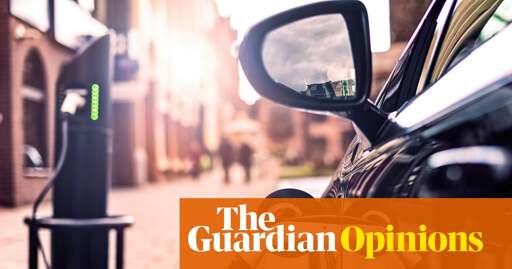The sales pitch had been that motorists could use “clean” battery power for city jaunts and dirty petrol for longer trips. This promised sustainable travel without the anxiety of a limited range. But real‑world tests, by the European non-profit Transport and Environment, show that PHEVs emit just 19% less carbon dioxide than petrol and diesel cars – far short of the 75% claimed in the lab.
Europe is a battleground between climate necessity, commercial reality and political clout. Four big European automotive companies avoided more than €5bn in fines because emissions compliance was not judged on real-world data. Switching to electric cars seems an obvious step. Yet former Renault boss Luca de Meo said earlier this year that EVs won’t be the dominant technology in Europe for two decades. It’s not just a lack of buyers or engineering nous holding back EVs. It’s that Europe’s carmakers are keeping profits rolling in by squeezing cash from hybrids and petrol cars.



I can only speak for myself: When I was 19, I got a driving license to help in my family’s small business by driving the van. And in the over 35 years since, I never needed an own car, in spite of living in three different countries, cities and suburban places between eight million people on the high end and ten thousand on the low side. I get that it is not possible to go without a car for everyone. But what counts most is what you want and how you organize your life. If you don’t use a car and care for the basics, your life will re-arrange itself in a way that is good.
I for my part love my bicycle. And if you now think in the dangers of road traffic: Well, using the bike is the mode of transportation which makes your life longer, not shorter, because the health benefits significantly out-weight the accident risk.
Lived in Liverpool and then Manchester from the age of 18, now nearly 2 decades of never needing to own a car.
The odd couple of times I’ve needed to move stuff around it’s either enlisting the help of a friend with a car or just renting a van. Other than that public transport and taxis cover 99% of any journey I’d need to make, and ultimately cheaper.
The only thing I’ll say is travelling across the country by train is forced into being something of a privilege at the prices of the tickets these days. The fact that if I decide to go to London for the weekend with my partner at short notice, that’s going to cost me about £200 discounted with a Railcard, is patently absurd when I could rent a car for the weekend and get a couple of tanks of petrol for less.
Still, travelling by train for long journeys beats having to concentrate on driving anyway IMO, so I’ll still pick the train.
I reckon we’d see a lot more people forgoing a car if more areas invested in their local public transport like the north west has, and if we can find a way to slash the prices of longer train journeys equivalent to equivalent prices in Europe.
When I lived in London I didn’t need a car because the transport network is so good. Now I live in Manchester I do need a car because the transport network isn’t anywhere near as good.
For me I work in the NHS and work at different sites. One site is about an hour walk from home (or 30mins bus) and I often walk to work. But the other sites just aren’t reachable in a timely manner even though by car it’s only 25mins away. I’d have to get a bus and 2 trams.
Unfortunately many workplaces outside the city centre are not directly accessible by public transport, so ars become a necessity. Meanwhile in London there is essentially a mesh of rail and buses making commuting on public transport more feasible.
The ultimate solution for me at least is expanding public transport but that’s politically broken in the UK. HS2s main benefit was actually freeing up capcity on the existing rail network - in Manchester that would have unclogged lines that could have become commuter railway lines with trains every 10mins. I have a station 10mins from my house by its useless for getting about as the line is mainly west coast trains heading into the city centre. Local trains that stop at my station are 1-2 an hour at most.
So electric cars will have to fill the gap.
!fuckcars@lemmy.world